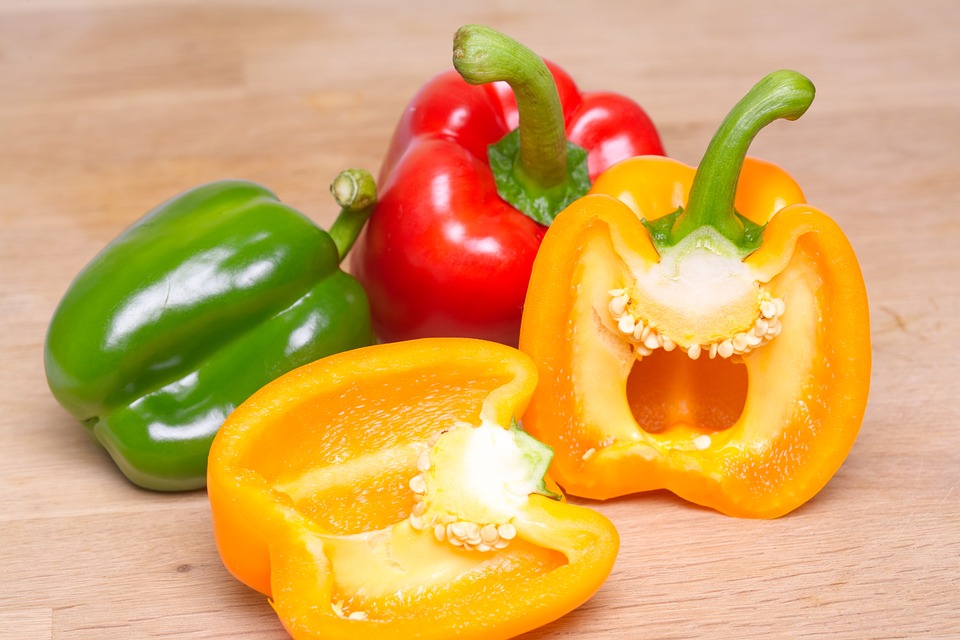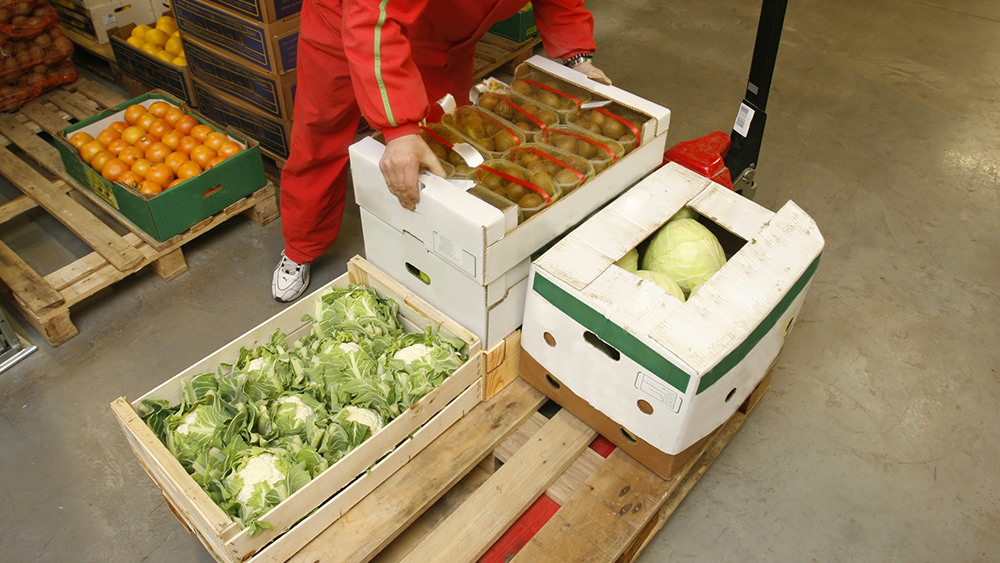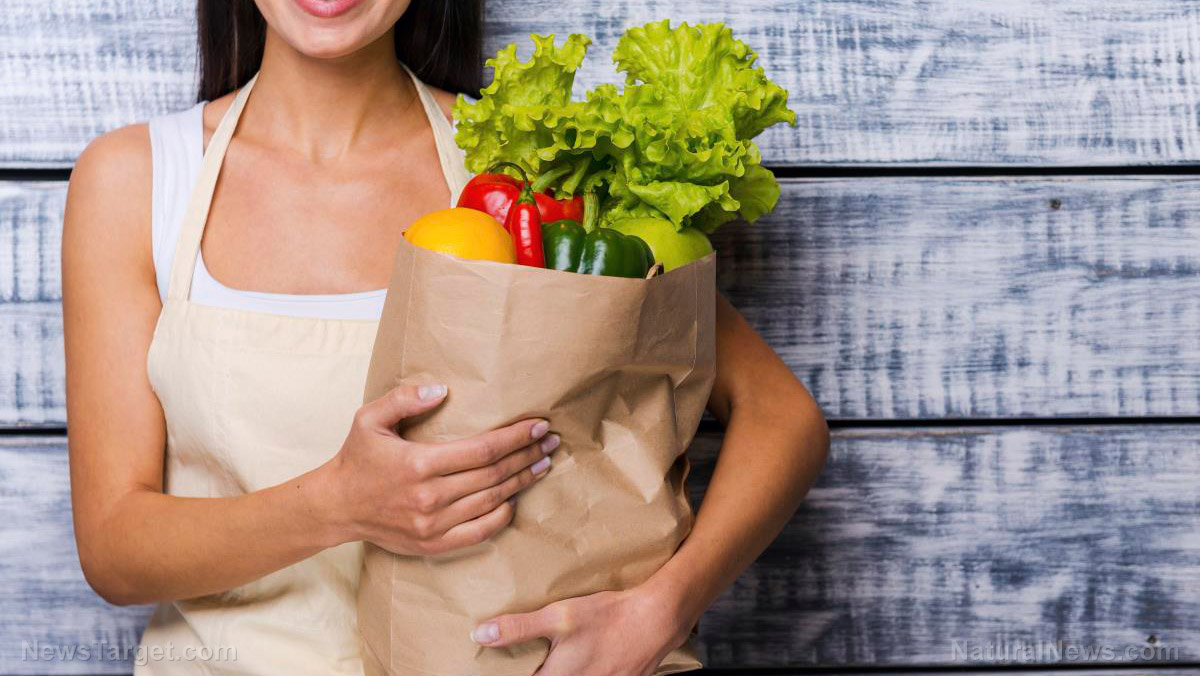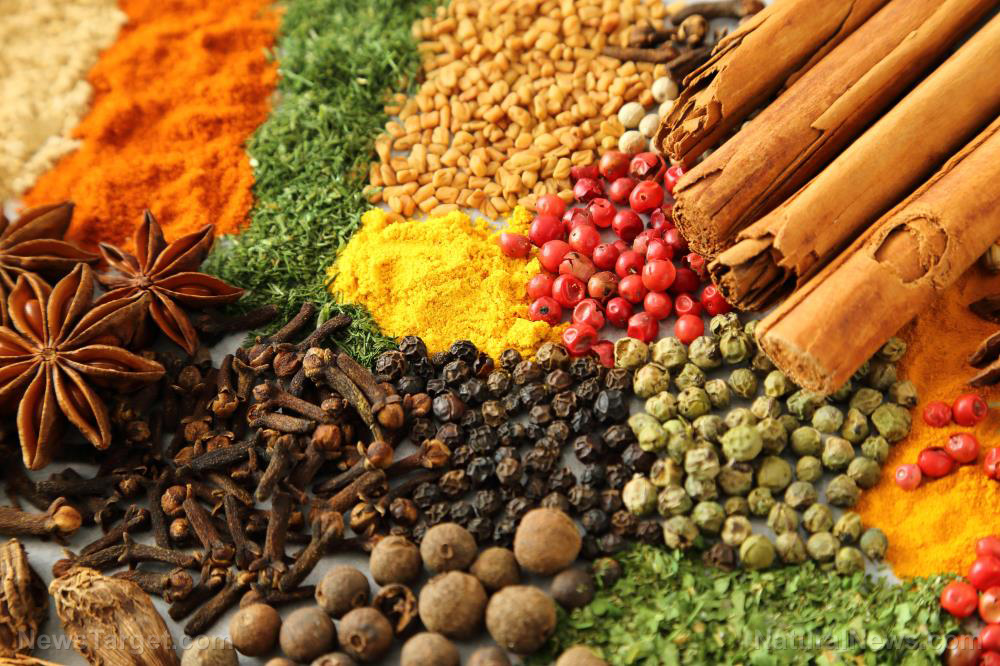Fill up your emergency storage with these 10 food items
04/09/2020 / By Arsenio Toledo

When preparing for a crisis – such as the global coronavirus pandemic – you need to stockpile food. Keeping a lot of food helps in many ways: It will sustain you for days, weeks or even months, and it will minimize the need to go out for groceries, reducing your risk of contracting coronavirus, which, as of press time, has infected over 1.5 million people worldwide and taken the lives of over 88,000.
If you’re looking to build up your emergency food stockpile, here are 10 foods and food-related products to add to your grocery list the next time you go shopping. (h/t to SHTFPlan.com)
Vegetables
Staying healthy during a crisis is crucial. This means you have to eat natural and healthy foods. Stock up on nutrient-dense vegetables like leafy greens and cruciferous vegetables. You should also get a variety of vegetables so you don’t get bored of your food.
Soup or broth
Canned foods, such as canned soups, can last for years on your shelf, making them excellent emergency survival foods. Much like vegetables, getting more than one kind of canned soup is essential to stave off food boredom. Fortunately, there’s a huge variety of healthy canned soups out there, like chicken noodle soup, lentil soup, garden veggie soup, chili and black bean soup.
Rice
Rice is an excellent survival food. Most uncooked kinds of rice, such as jasmine and basmati rice, have an indefinite shelf life when they’re kept in a secured pantry, in the fridge or in the freezer. The healthier varieties of rice, such as brown rice, may have a shorter life span of between three to 18 months, depending on where it’s stored. Many brands of rice sold in supermarkets will even sell their products in vacuum-sealed packages. Rice is a great filler that can easily be added to soups and other meals. (Related: Food safety tips: How to reduce the arsenic in your rice by 80 percent.)
Beans
Whether it’s pinto beans, black beans, cannellini beans or Mexican-style refried beans, these wonderful little superfoods are an ideal, shelf-stable source of protein. They are ultra versatile. You can sprout them, grind them into flour or add them into your soups and stews.
Spaghetti sauce
If you have pasta in your survival pantry, then you will definitely need spaghetti sauce. Getting several cans of spaghetti sauce is relatively inexpensive and spaghetti is easy to make. If you’re in the mood for some soup, you can even heat up the spaghetti sauce and add some water to make tomato soup.
Peanut butter
If nobody in your family has nut allergies, peanut butter should be on your shopping list. It’s universally well-liked by young and old alike and it’s full of healthy fats and proteins. If you’re looking for a quick meal in the morning or a snack in the afternoon, you can’t go wrong with a peanut butter sandwich.
Pancake mix
No good day starts without breakfast. Buying the brands of pancake mix that only require water will make this process of enjoying some nice breakfast pancakes easier. If you’re worried about storing your pancake mix, you can seal it and then put it in a freezer bag or into an airtight container.
Meat
Aside from shelf-stable meat like jerky, you can also get canned meat and even raw meat, especially if you have a freezer or if you know how to preserve food. Assuming that the food supply chains haven’t gone down, your local grocery might still have a variety of meat like chicken, beef, pork, tuna and salmon. Meat will be one of the most difficult kinds of food to restock during disasters, so buy as much as you can.
Salt
Salt will be important not just for seasoning your food, but also for curing your stored meat and making them last longer. In fact, there are dozens of reasons why your prepper pantry should have a lot of salt in it. Among other things, salt can be used for hygienic, medical and home improvement purposes.
Cooking oil
You should get at least one gallon of healthy cooking oil. Extra virgin olive oil is a great choice, but you can also get coconut, avocado, safflower, peanut, sesame or flaxseed oil.
Hopefully, with the help of these tips, you can build up a survival food stockpile that will help you weather any disaster.
Sources include:
Tagged Under: China, coronavirus, covid-19, emergency food, emergency food storage, emergency supplies, Flu, Food storage, food supplies, food supply, grocery, infections, outbreak, pandemic, preparedness, prepper, prepper pantry, prepping, SHTF, superbugs, survival, survival food, survival food storage, survivalist, virus



















